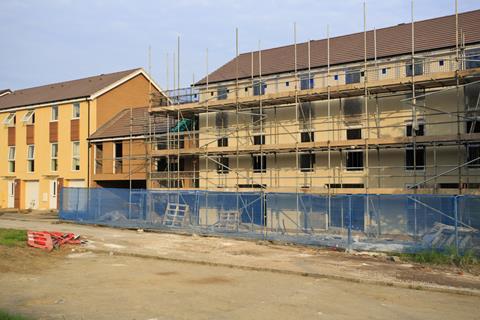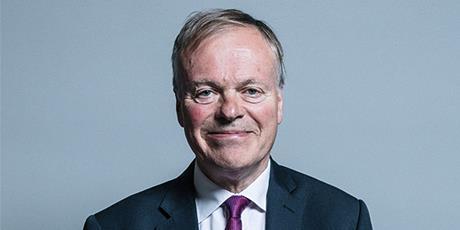Select committee chair says housing ministry has failed to address request
The government has side-stepped a call by MPs for a 90,000-homes a year social housebuilding programme designed to rebuild the economy in the wake of the covid crisis.

The call came in a report in July from the housing select committee, which also requested the government set specific targets for the quantity of different types of affordable housing it expects to be built each year.
The original report had called for the social housebuilding programme, with a price tag of nearly £13bn annually, to be made “top of the Government’s agenda to rebuild the country from the impact of COVID-19”. It said such a programme would “provide jobs, boost the economy, and help the Government meet its 300,000 homes a year target.”
However, responding to the committee, the housing ministry simply pointed to measures it has brought in to protect renters and developers hit by the pandemic, and the announcement last month of the £12bn affordable housing programme.
The government has previously made clear that some of the programme will be used to build homes at “social” rent levels, but has not set a target for how many, meaning the majority of the approximately 40,000-homes a year programme is likely to instead fund low cost home ownership and the more expensive “affordable rent” homes.
Social rented housing is made available to renters at a level based on a proportion of average local earnings, and can work out as low as a third of market rents, whereas “affordable rented” properties offer homes at just a 20% discount to market prices.

Labour MP and committee chair Clive Betts (pictured) said the committee would discuss the government’s response next week, and would likely be asking the housing ministry for further information. He told Housing Today: “We made very clear that the demand for 90,000 socially rented homes was at the heart of this report. It was absolutely key […] They haven’t addressed that point at all.
“As a committee we will be looking at this next week and will likely be writing to the department for more information. At this point we will assume it is an oversight.”
Official figures show that just under a quarter of the 241,000 net housing additions delivered in 2018/19 were of affordable housing. The government’s £12bn affordable housing programme is designed to deliver 180,000 homes over the next eight years, with around half expected to be low cost homes to buy.
In response to the request for specific targets for affordable housebuilding, the housing ministry said: “While we do not place a specific figure on the number of affordable houses which need to be built every year, we are committed not only to increasing the supply of new affordable homes, but ensuring that we build the right homes in the right places.”
However, the government did say it will explore the feasibility of introducing more comprehensive statistics on the number of affordable homes delivered, and said it will in the Autumn consult on changes to the system of compulsory purchase – another of the committee’s demands.
The committee had asked for the government to make changes to the Land Compensation Act to ensure that local authorities and development corporations have the power to compulsorily purchase land at a lower cost. The ministry said in response that: “We intend to publish proposals in the Autumn for consultation, including potential further reforms to the land compensation regime so it is fairer and easier to reach agreement.”
The government’s response to the committee comes a day after the Local Government Association (LGA) said the government’s proposed planning reforms, laid out in August, will seriously hit the supply of affordable housing – around half of which is paid for by developers under so-called Section 106 agreements.
The LGA said the government’s plan to remove the requirement for developers to provide affordable housing on site of fewer than 50 homes, would have reduced the provision of new affordable homes by 30,000 in the last five years. Currently the exemption only applies to site of fewer than 10 homes.
The ministry’s response said: “Government recognises there is a need for more homes of all types. We are committed to delivering wide range of affordable homes of different tenures so that we can support range of people in different circumstances and stages in their lives.”
The response came as the housing select committee announced plans for an inquiry into the government’s Planning White Paper, launched in August. Betts said: “A lot of MPs have clearly got concerns about this. The best way to address this is to have an inquiry and get the evidence.”
Betts said the inquiry would also consider proposed changes to the existing planning system published alongside the white paper, which include a hugely controversial new version of a government formula for calculating local housing need, as well as the proposals to raise the threshold above which affordable housing is required.










No comments yet